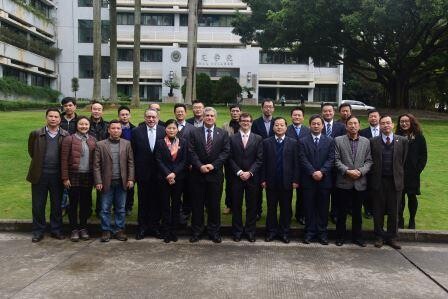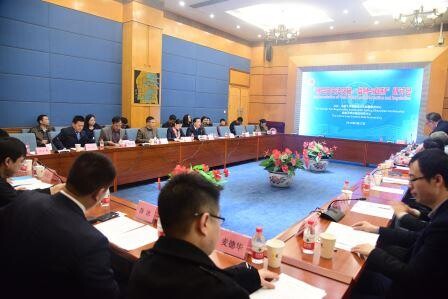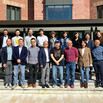China Center Holds Workshops on Food Safety Law Implementation and Transparency Issues
In March 2016, the China Center teamed up with partners in Beijing and Shenzhen, China, to hold to a series of workshops and meetings on food safety law and regulatory implementation mechanisms, with a special focus on information disclosure and transparency issues.

Acting Executive Director Robert Williams worked with partners at Peking University Law School, the Central University of Finance and Economics (CUFE) Law School, and Shenzhen University Law School, to organize programs bringing together experts from the United States and China to discuss key issues involved in designing and carrying out food safety regulatory systems—particularly in light of recent legislative amendments and common challenges faced by the two countries.
Joining the Center’s delegation were Mr. Frederick Sadler, a leading expert on the U.S. Freedom of Information Act (FOIA) and former Director of the U.S. Food and Drug Administration’s Freedom of Information Office; and Ronald Klein, Program Director of the Association of Food and Drug Officials and an expert in developing Integrated Food Safety Systems to leverage the resources of U.S. federal, state, and local agencies to collaboratively ensure a safe food supply.
Over several days, these experts engaged with Chinese counterparts from central and local regulatory agencies, academia, industry, and civil society to discuss practical approaches to a number of issues arising under China’s recently amended Food Safety Law. In many cases, the thorny issues confronting Chinese food safety regulators parallel and overlap with challenges facing the United States, some of which have been addressed through recent legislation such as the federal Food Safety Modernization Act. Participants discussed information disclosure and transparency as a regulatory tool; central-local government relations and regulatory integration; traceability systems; enforcement mechanisms such as facility inspections and food recalls; the challenges presented by online food sales through third-party platforms; consumer lawsuits; risk communication; and the coordination of foodborne outbreak response. Currently the Chinese government is developing regulations to implement China’s recently amended Food Safety Law, making our comparative discussion of these issues especially timely. The workshops featured perspectives from experts within the China Food and Drug Administration (CFDA), the National Food Safety Risk Assessment Center, provincial and municipal food and drug administrations, consumer associations, academia, industry, and the media.
A centerpiece of this effort was a workshop at Peking University Law School highlighting the release of a major report that evaluated the performance of Chinese central, provincial, and local government agencies on food safety information disclosure. Compiled through painstaking research and analysis on the part of the Open Government Information Watch Alliance (OGIWA) led by Peking University Law School Vice Dean and Professor Wang.

Xixin, this report garnered significant media attention, reflecting the intense and growing attention to food safety and government transparency on the part of the Chinese public. At the workshop announcing the report, U.S. and Chinese experts discussed the advantages and challenges of proactive release of information by the government; questions surrounding “vexatious” requests for government information; the need for clear definitions of the types of information subject to statutory exemptions; the concept of “reasonable segregation” of releasable and non-releasable information; providing understandable explanations when information is withheld; communicating known and unknown risks in real time; and supplying food safety information in an accessible, user-friendly format. The discussions included “case studies” addressing information disclosure before, during, and after a foodborne outbreak and recall, as well as a consumer-oriented comparison of the websites of Chinese and U.S. food regulatory agencies. The meeting also prompted detailed follow-up between OGIWA researchers and the U.S. experts concerning the rules and standards U.S. government agencies must follow in responding to citizens’ information requests.
Among the other featured events were full-day roundtable workshops held in conjunction with CUFE Law School’s Center for Food and Drug Law, led by Professor Gao Qinwei, as well as with Shenzhen University Law School’s Center for Regulation and Public Policy, led by Professor Ying Feihu. These workshops provided opportunities for extensive and detailed exchanges with a variety of government and non-government stakeholders regarding issues at the forefront of China’s efforts to incentivize compliance and achieve more thorough implementation of food safety laws and regulations.


